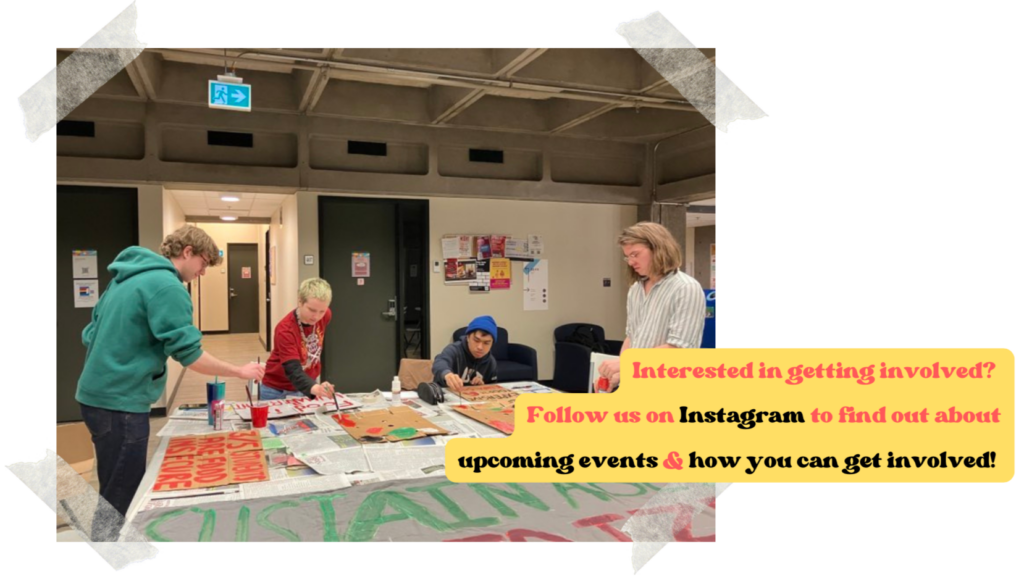The end goal of our research is to redesign McGill’s food system – proposing a concrete alternative to the monopoly under McGill’s corporate food provider Dana Hospitality. Thanks to the QPIRG summer research stipend, we spent the summer researching food systems at McGill and other universities to develop a vision for an alternative system and plan actions we can take during the year to set that vision in motion. We have also spent time unpacking McGill’s food system bureaucracy, and developing a long-term plan to change the food system at McGill.
Food insecurity can be placed squarely in the center of social injustice and environmental exploitation. The significant harm colonial societies have had on the environment combined with the inequitable distribution of wages has resulted in limited production and availability of healthy food and increased poverty. As the pandemic heightened disparities, it is now clearer than ever that access to sustainable living – what should be a human right – is based on factors outside of our control such as disenfranchisement and the climate crisis. Healthy food is simply too expensive and/or too far. Furthermore, not meeting nutritional needs has direct impacts on education and increases the risk of developing health issues – the effects of which are magnified amongst marginalized, already at-risk groups such as Indigenous communities and those with disabilities. We hope, by centering anti-oppression as a key strategy to address food insecurity, that our research will provide sustainable solutions.



